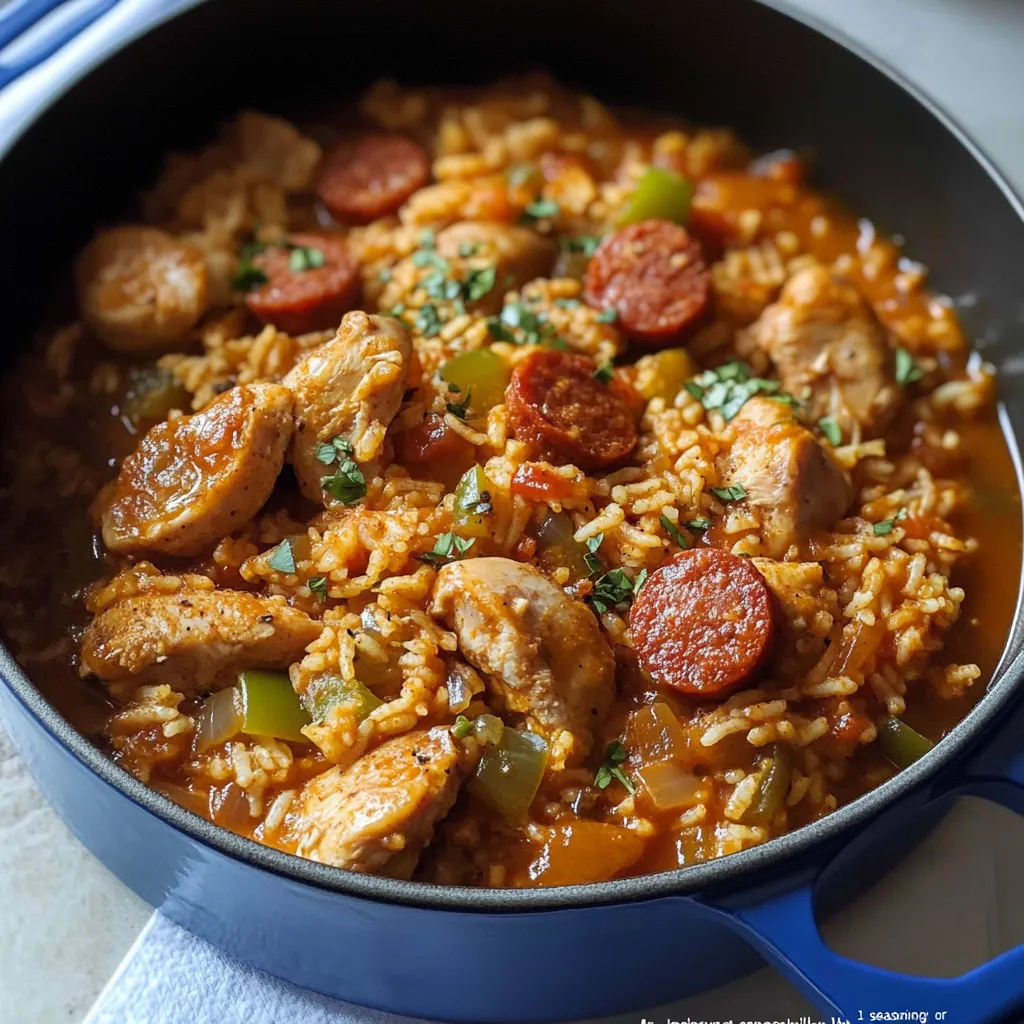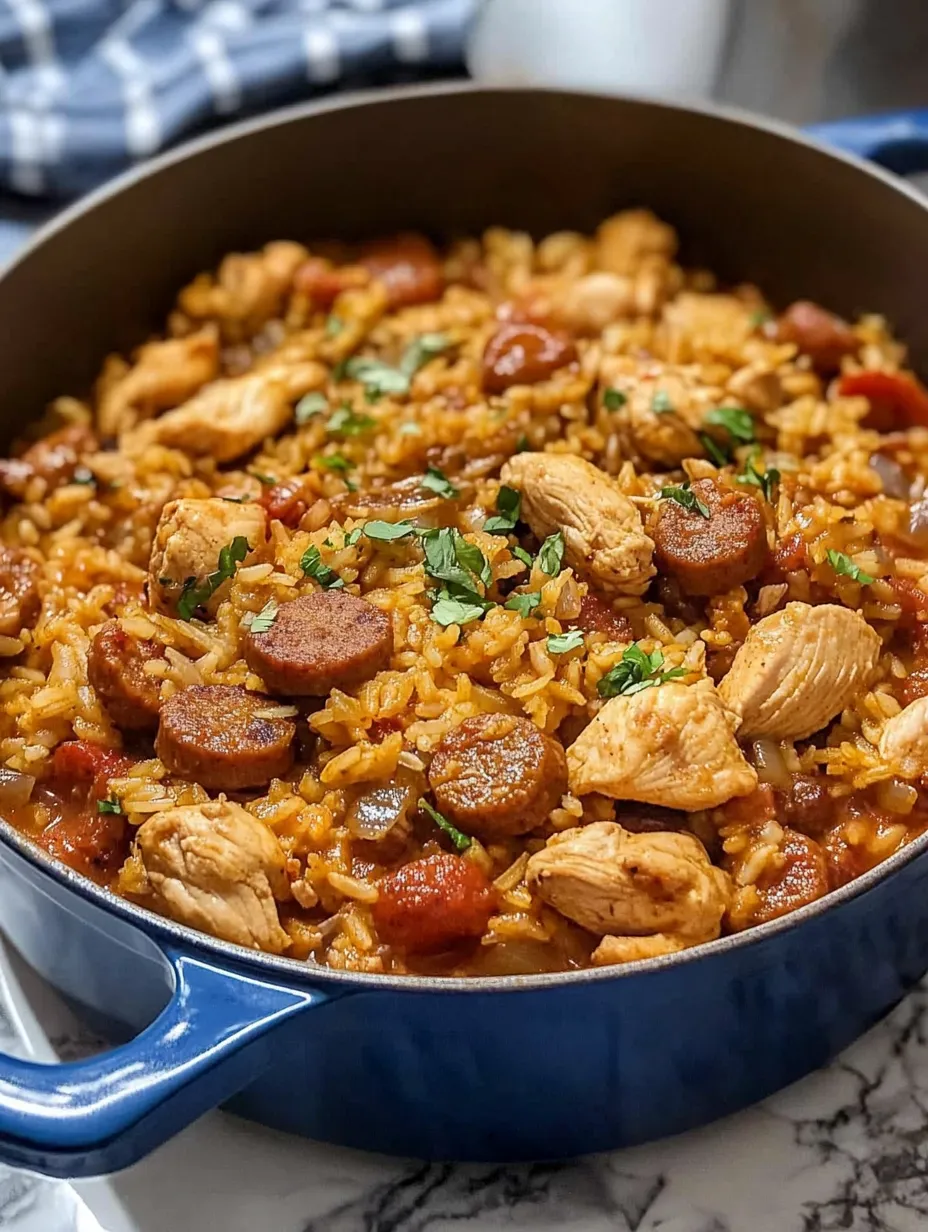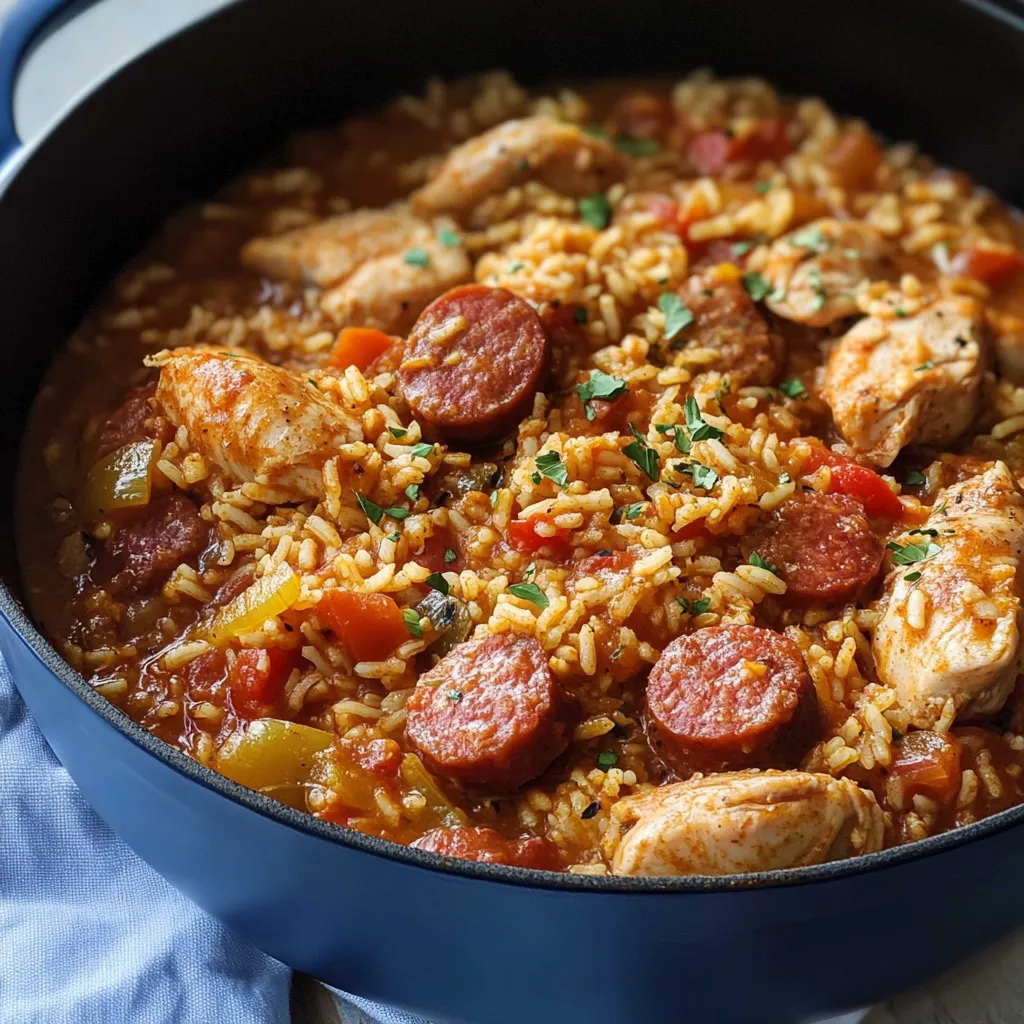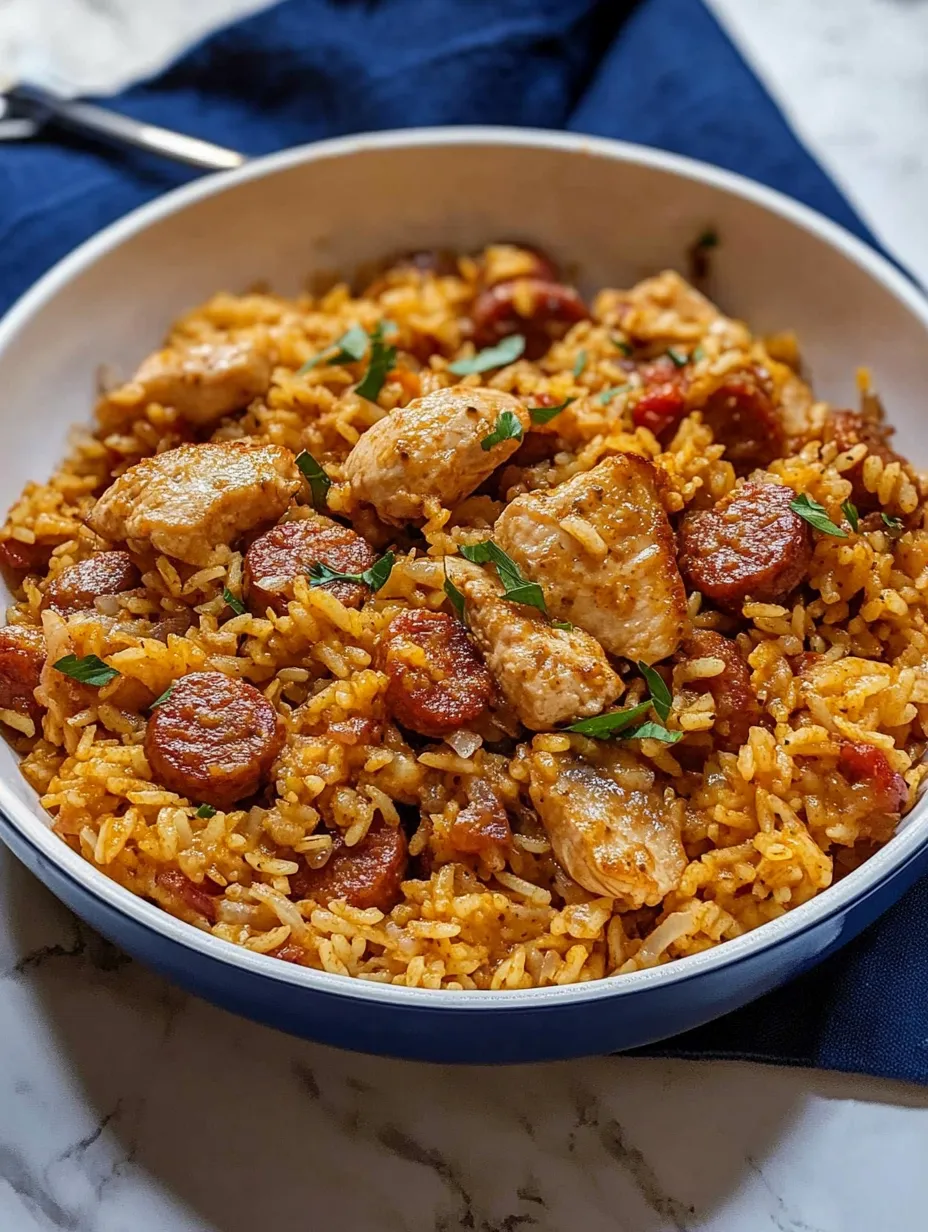 Pin it
Pin it
True Louisiana flavors come alive in this hearty Cajun Chicken and Sausage Jambalaya. The key to this dish lies in letting those spicy sausage drippings mingle with tender chicken thighs and perfectly seasoned rice, creating that authentic New Orleans depth that makes you want to go back for seconds. This one-pot wonder transforms simple ingredients into pure comfort food magic.
I've made this jambalaya countless times, and it never fails to impress. Last month, my neighbor caught the aroma drifting over the fence and practically invited himself to dinner. The secret? Taking time to properly brown the meats - those caramelized bits at the bottom of the pot are pure gold.
Essential Ingredients and Why They Matter
- Chicken thighs: Dark meat is non-negotiable here - it stays juicy and tender throughout the long cooking process
- Andouille sausage: Brings that signature smoky depth; choose a high-quality brand that's nicely marbled
- The Holy Trinity (onion, celery, bell pepper): This traditional Cajun base creates the foundation for all the flavors to build upon
- Extra-long grain rice: Regular long-grain rice can get mushy; extra-long stays distinct and fluffy
- Cajun seasoning: Tony Chachere's or Slap Ya Mama are authentic choices that deliver the right balance of salt and spices
- Canned tomatoes: They add both liquid and acidity, helping the rice cook perfectly while brightening the dish
 Pin it
Pin it
Detailed Step-by-Step Instructions
- Getting Started
- Pat chicken pieces completely dry before seasoning to ensure proper browning. Heat your pot until it's properly hot before adding oil - a drop of water should dance across the surface. Season the chicken generously with Cajun seasoning on all sides. Work in batches to avoid overcrowding, which prevents proper browning.
- Building the Base
- Don't rush the vegetable cooking process - they should become soft and translucent. Scrape the bottom of the pot thoroughly when adding vegetables to incorporate all the flavorful browned bits. Let the trinity cook until the onions are almost caramelized for maximum flavor. Add tomatoes and let them bubble for a few minutes to concentrate their flavor.
- The Rice Phase
- Stir rice thoroughly to coat each grain with the seasoned oil. When adding broth, pour it in slowly while stirring to prevent rice from clumping. Bring to a full boil before reducing heat - this ensures proper temperature for cooking. Once covered, resist the urge to peek or stir.
 Pin it
Pin it
Growing up near Louisiana, I learned that jambalaya isn't just a recipe - it's a story in a pot. My grandmother always said the secret was in the patience, letting each ingredient contribute its flavor at just the right moment.
Family Memories and Traditions
This dish has a way of bringing people together. In my house, jambalaya night means everyone gravitates to the kitchen, drawn by the irresistible aroma of sautéing trinity and browning sausage. It's become our go-to meal for everything from Sunday dinners to game day gatherings.
The beauty of jambalaya lies in its ability to feed both body and soul. Whether you're cooking for a quiet family dinner or a lively gathering, this dish never fails to create moments worth remembering. The way the flavors meld together - the smokiness of the sausage, the richness of the chicken, and the subtle heat of the seasonings - makes every spoonful a celebration of Louisiana's culinary heritage.
 Pin it
Pin it
Making it Your Own
Every Louisiana cook has their own jambalaya secrets, and as you make this recipe, you'll develop yours too. The beauty of this dish lies in its adaptability. I've found that adding a splash of Worcester sauce deepens the flavor profile, while a dash of hot sauce at the end brightens everything up. Through countless iterations, these little tweaks have helped me perfect my version.
Serving and Presentation Suggestions
The authentic way to serve jambalaya calls for simple accompaniments that complement without overwhelming:
Crusty French bread, ideally warmed and buttered, to soak up every last drop
A simple green salad dressed with vinaigrette to cut through the richness
Ice-cold beer or sweet tea - the traditional Louisiana way
Temperature and Timing Mastery
Success with jambalaya often comes down to heat control:
Keep the heat steady and low during the final cooking stage
If your stove runs hot, use a flame tamer or diffuser
Always let it rest for 10-15 minutes before serving to achieve the perfect texture
Troubleshooting Common Issues
Over years of making this dish, I've encountered and solved various challenges:
If rice is still hard: Add ¼ cup hot broth, cover, and cook for 5 more minutes
If mixture is too wet: Remove lid and cook on low for 5-10 minutes
If bottom is sticking: Lower heat and place a sheet of foil under the lid to create a tighter seal
Making Ahead and Storage
Jambalaya actually improves with time, making it perfect for meal prep:
Store in airtight containers in the refrigerator for up to 4 days
Freeze portions for up to 3 months in freezer-safe containers
When reheating, add a splash of chicken broth to maintain moisture
Regional Variations
While this is a Cajun-style jambalaya, you might also explore:
Creole jambalaya, which includes tomatoes and seafood
Country jambalaya, made with pork and smoked sausage
Vegetable jambalaya, loaded with okra and bell peppers
The Legacy of Jambalaya
This dish represents more than just dinner - it's a celebration of Louisiana's rich culinary heritage. Each ingredient tells a story of cultural fusion, from the Spanish influence in the rice to the French and African contributions to the seasoning profile. When you make jambalaya, you're participating in a tradition that's been passed down through generations of Southern cooks.
Remember, the best jambalaya is the one made with patience and love. Whether you're a seasoned cook or trying this for the first time, embrace the process and enjoy creating this beloved Louisiana classic. The reward is a dish that not only fills bellies but creates lasting memories around your table.
Frequently Asked Questions
- → Can I use different meat?
- Yes! Try shrimp, different sausages, or pork. Just adjust cooking times accordingly.
- → Why can't I use instant rice?
- Regular rice absorbs flavors better and provides the right texture. Instant rice would become mushy.
- → How spicy is this?
- Moderate heat from the sausage and cajun seasoning. Adjust seasoning amount for milder taste.
- → Can I freeze leftovers?
- Yes, freeze in airtight container up to 3 months. Reheat with a splash of broth.
- → Why not lift the lid while cooking?
- This keeps steam in, ensuring rice cooks properly and absorbs all flavors.
